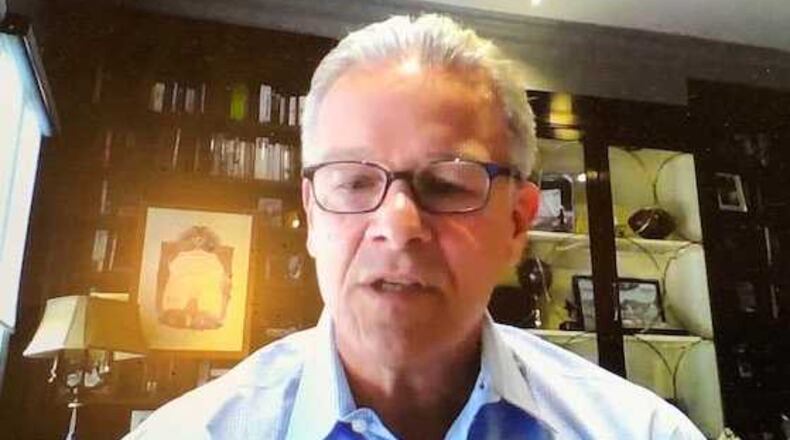Mercedes-Benz Stadium executives hosted a virtual conference Friday at which they advised other venues to convert to a cashless transactions model.
The downtown Atlanta stadium last year became the first major U.S. stadium to stop accepting cash.
“I think the business case spoke for itself before COVID-19. I think it’s a necessity after COVID,” said Steve Cannon, CEO of AMB Group, Arthur Blank’s group of businesses. “And who knows how long we’re going to be operating with a latent amount of fear in our fan bases’ minds about touching and extra contact?”
Mercedes-Benz Stadium officials said some 900 representatives from across pro and college sports – all of which is shut down by the coronavirus pandemic -- joined the digital conference about cashless stadium strategies.
When the home of the Falcons and Atlanta United adopted its fully cashless model for all events in March 2019, requiring payment for food, beverages and merchandise with credit cards, debit cards or mobile services, stadium officials said the main motivation was to speed transactions and shorten waits at concession stands. But when fans return to sports events -- no one knows when that will be -- the motivation for other stadiums to consider going cashless likely will be different.
“Why most of you guys are probably interested in it at this time is the reduced physical contact, (eliminating) the dirty nature of cash going back and forth from people,” Greg Beadles, chief financial and administrative officer of AMB Sports & Entertainment, told the conference participants.
Gordon Barfield, AMBSE’s director of business strategy, said Mercedes-Benz Stadium’s conversion to a cashless operation resulted in a $350,000 expense savings last year. That came by eliminating costs associated with moving, counting and securing large amounts of cash in the stadium.
Barfield also said the stadium had a 16% increase in food and beverage sales per capita.
For those without credit or debit cards, 10 kiosks were installed around the stadium, where cash can be loaded onto prepaid debit cards with no transaction fees. Only 1.2% of fans used the kiosks last year, Barfield said.
A cashless model for stadiums “made sense before COVID-19 struck,” Cannon said. “We think it makes even more sense given the fear that resounds around the country and in our fan bases around proximity and touching.”
About the Author
Keep Reading
The Latest
Featured


